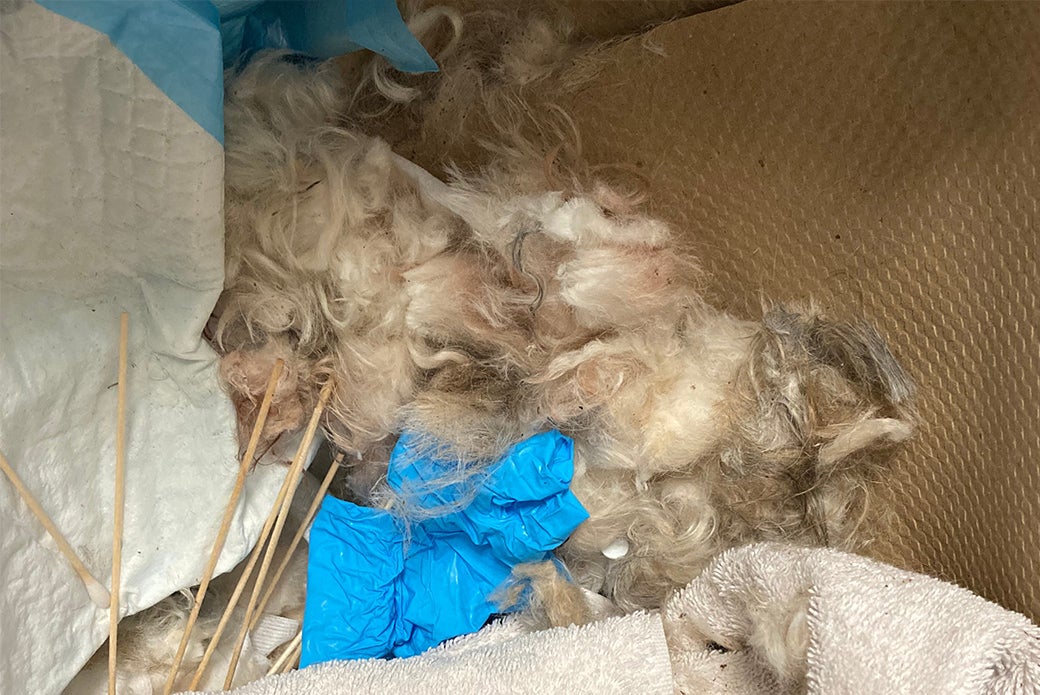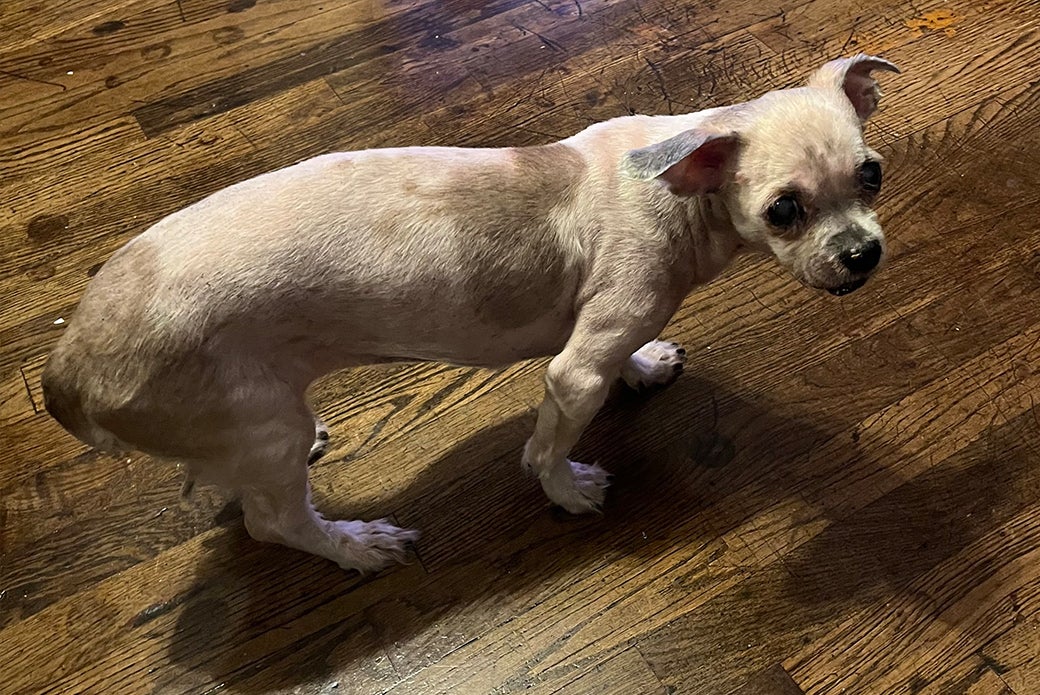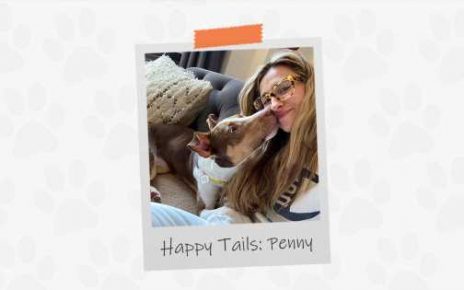

During the pandemic, Veronica M. kept tabs on her 86-year-old mother, Hilda, through Facetime video chats, often asking about Hilda’s 15-year-old Shih Tzu, Porsche.
“We knew Mom was okay, but we never saw Porsche,” Veronica says.
Several months later, Veronica, who lives in upstate New York, visited her mother in her Brooklyn apartment and was alarmed by Porsche’s condition.
“Porsche’s hair had grown long and was severely matted,” Veronica says, “She wasn’t eating. She was thin. I asked Mom why she hadn’t told us about Porsche’s situation, but Mom was nearly in tears.”
Veronica thought they might have to put Porsche to sleep.
“We were heartbroken,” she says. “I didn’t blame Mom for the situation. I realized we should have asked to have seen Porsche over Facetime, too.”
A Surprisingly Simple Solution
Veronica’s daughter, Shakeena, had noticed the ASPCA Community Veterinary Clinic (CVC) in East New York, near her grandmother’s house, and suggested they bring Porsche there. On November 3, she and Veronica took Porsche to the Clinic.


“They were concerned about Porsche’s quality of life,” says Cesar Gutierrez, Manager of Operations, who, along with Patient Liaisons Carla Galeas and Luisa Correa, spoke with Shakeena and Veronica.
Dr. Elaine Kosik examined Porsche and diagnosed severe matting and dental disease.
“Porsche’s entire face was matted, hindering her ability to eat,” says Dr. Kosik. “Her dental disease probably caused much drooling, which could make the face get matted more quickly. Due to the mats, I couldn’t even examine her mouth or face in detail.”
Dr. Kosik spoke to Veronica and her daughter and suggested sedating Porsche for a grooming and a thorough exam to see if her matted face was hindering her ability to eat. Veronica agreed.
The Primary Pet Care team, including Queyi Chan, Licensed Veterinary Technician, and Tommy Drexler, Senior Veterinary Assistant, assisted Dr. Kosik, who gave Porsche a mild sedative so they could shave off her matted hair.


At 15, Porsche was considered a high risk for sedation,” Cesar says. “But the attentive and caring touches of Dr. Kosik, Queyi, and Tommy ensured that Porsche not only made it through the sedation safely but made a safe recovery before she was discharged.”
Before the exam, blood tests showed Porsche’s liver and kidneys were normal.
“Other than severe dental disease, Porsche was okay under all the matting,” says Dr. Kosik. “She only had a few teeth left, and one fell out during the exam. We sent her home with antibiotics and pain medication, hoping for a great outcome.”


“Porsche’s family went from thinking euthanasia was the likely outcome to realizing a thorough grooming was what she needed—a simple intervention that should improve and help prolong Porsche’s quality of life,” says Cesar.
‘A Complete Turnaround’
A week after Porsche’s visit to the CRC, Cesar phoned Hilda to check her progress.
“It’s a complete turnaround; she is like a whole new dog,” Hilda told Cesar. “She’s eating, running around and playing.”
“We were so happy,” says Veronica. “Porsche’s quality of life has improved tremendously. It made a big, big difference.”
Hilda was also very moved by Porsche’s recovery.
“She’s had her a long time, so this was very emotional,” Veronica says, noting that Porsche was gifted to Hilda and her late husband from Shakeena.
Veronica’s nephew and his two sons are staying with Hilda for the time being, and they’ll be keeping an eye on Porsche too.
“Porsche loves the company,” says Veronica, who plans to move back to Brooklyn soon. “Now, every time we Facetime Mom, we say, ‘Let’s see Porsche.’”
Source: Read Full Article



